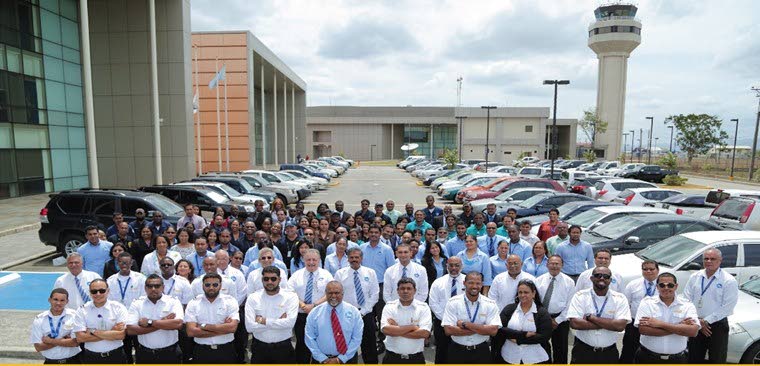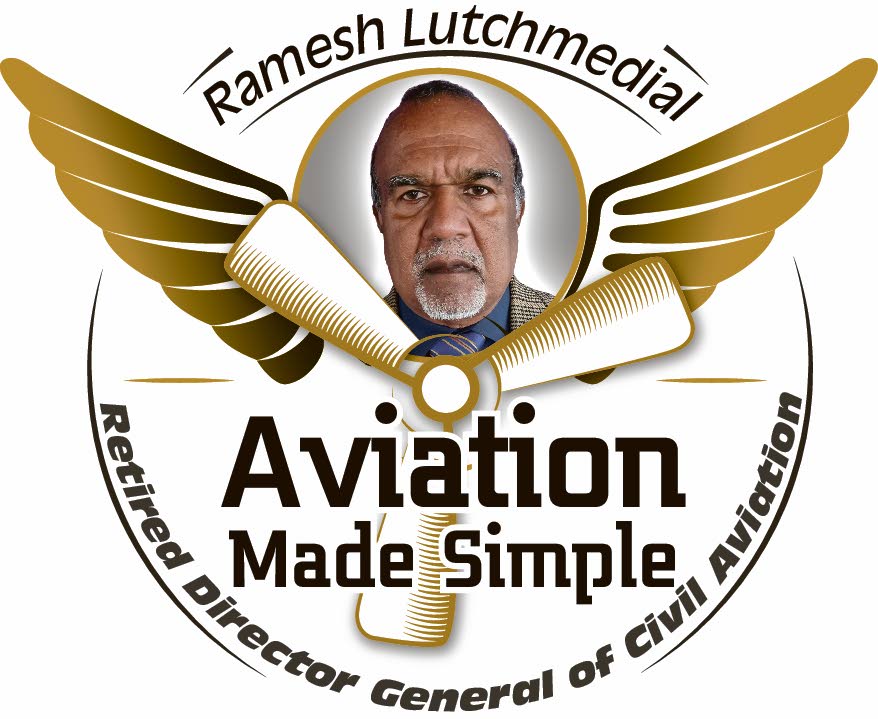Navigating executive turbulence

The five years I spent as a member of the first republican parliament of TT was one of my greatest learning experiences.
Sitting in the House of Representatives with the likes of Dr Eric Williams, Errol Mahabir, Basdeo Panday, George Chambers, Patrick Manning, Raffique Shah, Kamaluddin Mohammed and ANR Robinson, I learnt how to navigate executive turbulence. More importantly, I realised that politics was not my forte and when my term was up, I returned to continue my aviation career.
Another great learning experience was the 31 years I spent at BWIA, with the last five years being the director of flight safety.
It prepared me to successfully compete for the position of the first director general of Civil Aviation (DGCA) in the newly established TT Civil Aviation Authority (TTCAA).
As the DGCA, I was intimately involved in the drafting of the Civil Aviation Act. Due to the very highly safety-sensitive and international nature of aviation, the drafters took a cue from Section 17 of the TT Postal Corporation Act. The drafters included section 3(1) which states that the minister shall be responsible for the general administration of the act and the development of policy on air navigation for TT. Section 3(2) of the act states that in furtherance of subsection (1), the minister may give to the board any general or special policy directions in relation to this act, with which the board shall comply. Perhaps the most cogent part of section 3 is sub-clause (3) which states that directions given in furtherance of this section, shall not be inconsistent with the provisions of this act and shall be in writing signed by the minister.
This effectively means, as an example, that a minister cannot direct the board to grant a TT pilot licence to an individual who does not satisfy the requirements of Civil Aviation (No 1): General application and personnel licencing regulations for the grant of such licence.
The duties of the DGCA are circumscribed in the Civil Aviation Act, the Civil Aviation Regulations and the TTCAA tender rules, the latter two being approved by negative resolution of parliament.
I served under five administrations with nine different line ministers. I had a very cordial relationship with almost all of the line ministers, particularly Colm Imbert and Jack Warner.
As the CEO of a high-profile state agency, more so, one whose functions were highly regulatory, relationships sometimes became turbulent.
I walked a very tightrope to navigate a balance between respect for higher authority and strict compliance with the multiplicity of laws and regulations that govern the operations of the TTCAA.
There were times when I had to steadfastly hold my ground to avoid being coerced into misconducting myself in public office.
With the proclamation of the act, the TTCAA assumed responsibility for the regulation of all civil aviation operations in TT.

Section 25 of the act empowered the board to employ such staff as is required by the authority for the proper administration of its functions and to fix qualifications, terms and conditions of service and salaries for its employees.
With the approval of the board, inspectors were employed to perform certification and surveillance duties with the TTCAA.
A couple of days later, the Ministry of Works and Transport permanent secretary called me up and chastised me for what he termed "contemptuous behaviour" as the then public management consulting division of the Ministry of Public Administration had not approved an organisational structure for the TTCAA.
Likewise, the public sector negotiating committee had not approved any salaries and terms and conditions for TTCAA employees.
I asked the PS if he was prepared to take responsibility for criminal negligence should there be an aviation accident and an investigation determined that the root cause was the failure of the TTCAA to discharge its statutory certification and surveillance responsibilities. He never answered the question and I refused to rescind the appointments.
Three months later, the board approved my attendance at an overseas meeting. As a courtesy, I informed the PS and the minister in writing that I would be out of jurisdiction and provided the contact details of the executive approved by the board to manage the TTCAA in my absence. Shortly afterwards, I received a faxed letter signed by the PS stating that he was "directed by the minister to instruct me not to proceed on overseas travel."
I promptly replied stating that in accordance with section 3 (3) of the act, the instruction must be signed by the minister. Suffice it to say, I had a very successful meeting.
Several years after TT proudly attained FAA IASA category 1 status, I was summoned to the Office of the Prime Minister.
The prime minister handed me a letter sent by a senior cabinet minister complaining that the TTCAA would not automatically convert an FAA commercial pilot’s licence (CPL) to a TT CPL.
I informed the PM that an applicant wishing to convert a foreign CPL to a TT CPL must satisfy the requirements of regulation 44 of the Civil Aviation Act. This includes passing the required knowledge tests in several areas. I explained the rationale for this requirement and advised the PM that in order to facilitate an automatic conversion, the law would have to be changed.
The PM was at a loss to understand the reason for the minister’s letter as his portfolio did not include aviation matters. I then informed the PM that the minister’s son had recently obtained an FAA CPL and wanted an automatic conversion to a TT CPL to seek employment with a local airline. Visibly upset, the PM stated that the law would not be changed to benefit any minister’s son.
Subsequently, the minister’s son complied with the requirements of the act and obtained his TT CPL. He is now pursuing a successful career with CAL.
I had a very fulfilling aviation career. With dedication, creativity and innovation, TT gained prominence on the world’s aviation map.
In 2016, despite being previously vetoed by others, Prime Minister Dr Rowley approved the recommendation to award me the Chaconia gold medal.

Comments
"Navigating executive turbulence"